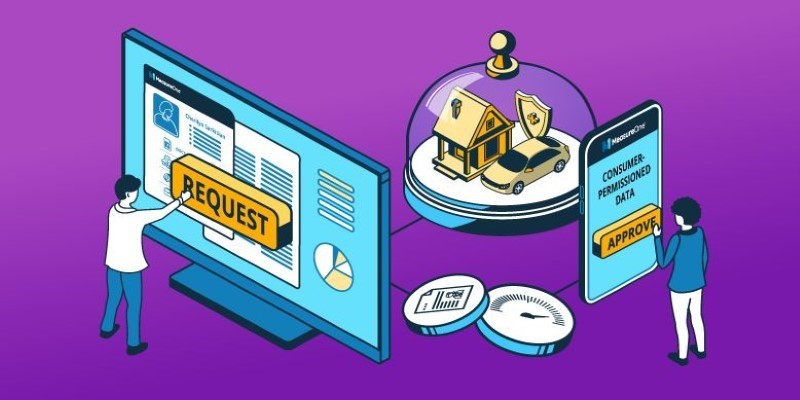How Does The Gig Economy Impact The Insurance Needs?
The gig economy, which has surged in popularity over the past decade, is reshaping how many people earn their living. Whether driving for rideshare companies, freelance writing, or offering services like dog walking or graphic design, gig work is more flexible and offers a sense of independence that traditional employment does not. However, while the gig economy provides numerous advantages to workers and businesses, it also presents new challenges, particularly regarding insurance.
Insurance, a field often tied to traditional full-time employment, has struggled to keep pace with gig work's rapid growth and unique nature. In 2024, as gig work continues to expand globally, there will be an increasing need for more tailored insurance products to address the specific risks and requirements of gig workers. This article examines how the gig economy influences insurance needs and what that means for workers and insurers.
The Rise Of Gig Work And Its Unique Risks
The gig economy has snowballed over the past few years, with millions of individuals worldwide now working in non-traditional, flexible jobs. According to a report by McKinsey in 2024, nearly 36% of the U.S. workforce is involved in gig work, which is expected to rise as more workers seek greater flexibility in their careers. While gig work offers flexibility, it also exposes individuals to risks that may not be covered under traditional insurance policies.
Gig workers often find themselves in unpredictable work environments. For example, rideshare drivers risk accidents or vehicle damage while transporting passengers. Freelancers who work from home may be exposed to risks related to their home office, such as fires or data breaches. Many of these risks are not typically covered by standard health, life, or auto insurance policies, leaving gig workers vulnerable to unexpected financial burdens.
As a result, there is a growing need for insurance policies that specifically address the unique risks of gig work. This has led to the development of new insurance products that are more adaptable to the needs of gig workers, providing coverage for situations that may not be covered under traditional policies.
Health Insurance And Gig Workers: A Growing Gap
One of the most significant concerns for gig workers is health insurance. Traditional employees typically receive health benefits through their employers, but gig workers must often secure their coverage, which can be costly and complicated. This issue has only become more pressing as healthcare costs continue to rise in many countries.

In the U.S., for instance, nearly half of gig workers report struggling to afford health insurance, according to a 2024 National Bureau of Economic Research study. Many gig workers are also excluded from employer-sponsored insurance benefits. While some may qualify for government programs like Medicaid or the Affordable Care Act (ACA) in the U.S., these options do not always provide comprehensive coverage for workers in high-risk industries like rideshare driving or construction.
There has been a rise in short-term and customizable health insurance plans designed for gig workers to address this gap. These plans offer greater flexibility and lower premiums, but they often come with coverage and network access limitations. Some insurance providers also provide hybrid plans that combine health coverage with other benefits, such as dental, vision, and mental health services, which are increasingly crucial for gig workers.
Liability Insurance For Gig Workers: A New Requirement
Liability is another significant concern for gig workers, particularly those in service-oriented fields such as transportation, cleaning, or delivery. With a traditional employer-employee relationship, it can be easier to determine who is responsible when things go wrong. For instance, if a rideshare driver is involved in an accident, deciding whether the driver's auto insurance policy will cover the incident or the ride-sharing company's insurance will apply is essential.

The gig economy's growth has pushed insurers to create new liability products tailored to these specific scenarios. For example, many rideshare platforms now provide limited liability insurance to drivers. Still, this coverage often kicks in only after the driver's personal insurance policy has been exhausted, and it may not cover certain types of accidents, such as those that happen when the driver is not actively transporting a passenger.
To mitigate this risk, gig workers in higher-risk industries increasingly purchase specialized liability insurance. These policies are designed to cover incidents that fall outside the scope of traditional insurance, protecting workers who need it most. However, the cost of these policies can be a barrier for some workers, particularly those who are just starting or who work part-time.
The Need For Income Protection
Income protection is another area where gig workers face unique challenges. Unlike traditional employees, gig workers often do not have access to paid sick leave, unemployment benefits, or workers' compensation. As a result, many gig workers face financial instability if they cannot work due to illness, injury, or other unexpected events.

This gap in income protection has led to the development of specialized insurance products that focus on replacing lost income for gig workers. These policies often include coverage for illness, injury, and other events that may prevent workers from earning their usual income. Some income protection policies also allow workers to customize their coverage depending on their needs and work situation.
However, these income protection policies can be expensive, especially for workers without a steady income stream. In addition, many gig workers need to be made aware of these options or fully understand how to navigate the complex world of insurance. As a result, income protection remains an area where many gig workers are underinsured.
Insurance For Gig Economy Platforms
While much of the conversation around insurance for the gig economy focuses on workers, there is also a growing need for insurance solutions that cover the platforms themselves. Companies that facilitate gig work, such as Uber, Lyft, TaskRabbit, and others, increasingly face liability risks that are not present in traditional employment relationships. These platforms must balance the needs of their workers with the potential legal and financial risks they face.

In response to these risks, many gig economy platforms are investing in comprehensive insurance policies that cover their workers and business operations. These policies typically include general liability, product liability, cyber insurance, and workers' compensation. In addition, some platforms now offer insurance packages for their workers to attract and retain top talent.
Despite these efforts, the insurance needs of gig economy platforms remain complex and continue to evolve. As gig work becomes more widespread, workers and platforms must work together to develop insurance solutions that protect everyone involved.
The Future Of Insurance In The Gig Economy
The demand for tailored insurance products will only increase as the gig economy grows. In 2024, insurers are starting to recognize the unique needs of gig workers and are developing new solutions to meet those needs. These solutions range from more flexible health insurance options to specialized liability and income protection policies. However, the gig economy is still relatively new, and the insurance industry must continue to adapt to the changing landscape.

In the future, we may see more comprehensive insurance products that combine multiple types of coverage, such as health, liability, and income protection, into a single package. These products would provide gig workers with more affordable, all-in-one solutions that address their varied needs. Additionally, technological advances, such as telematics and data analytics, may enable insurers to offer more personalized and risk-based pricing, making insurance more accessible for gig workers.
Conclusion
The gig economy is reshaping the workforce, and with that comes the need for new, innovative insurance solutions. As gig workers face unique risks and challenges, traditional insurance models are being pushed to adapt. In 2024, the demand for flexible, customized insurance policies is on the rise, and insurers are beginning to respond with products tailored to this growing sector's needs. For gig workers, this means more options to protect themselves from the risks of non-traditional work. Still, it also means navigating a complex insurance landscape that can be difficult to understand. As the gig economy continues to evolve, so will the insurance products designed to meet its unique needs, providing gig workers with the protection they need to thrive in an increasingly uncertain world.


